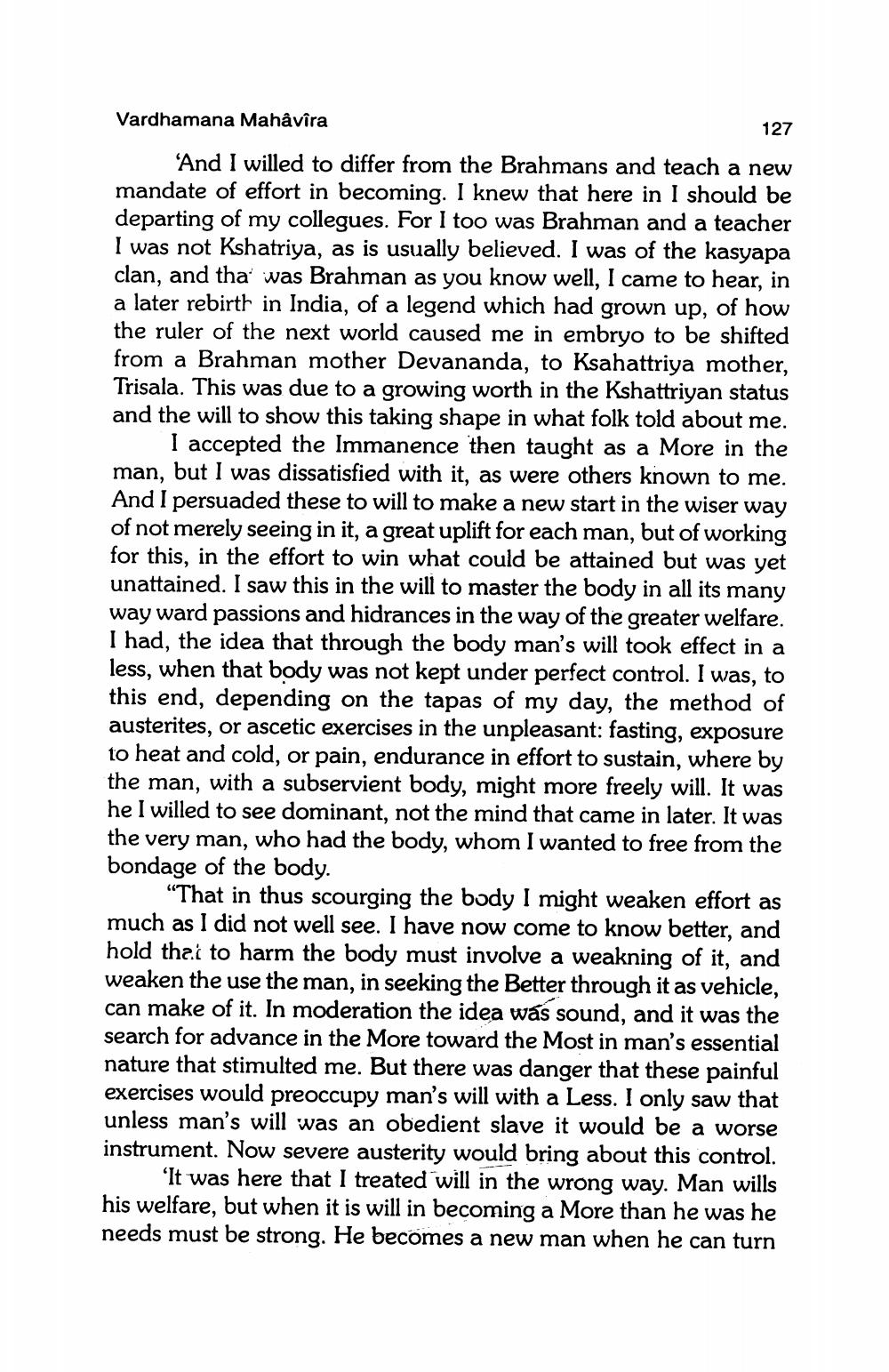________________
Vardhamana Mahâvîra
127
'And I willed to differ from the Brahmans and teach a new mandate of effort in becoming. I knew that here in I should be departing of my collegues. For I too was Brahman and a teacher I was not Kshatriya, as is usually believed. I was of the kasyapa clan, and tha' was Brahman as you know well, I came to hear, in a later rebirth in India, of a legend which had grown up, of how
uler of the next world caused me in embryo to be shifted from a Brahman mother Devananda, to Ksahattriya mother, Trisala. This was due to a growing worth in the Kshattriyan status and the will to show this taking shape in what folk told about me.
I accepted the Immanence then taught as a More in the man, but I was dissatisfied with it, as were others known to me. And I persuaded these to will to make a new start in the wiser way of not merely seeing in it, a great uplift for each man, but of working for this, in the effort to win what could be attained but was yet unattained. I saw this in the will to master the body in all its many way ward passions and hidrances in the way of the greater welfare. I had, the idea that through the body man's will took effect in a less, when that body was not kept under perfect control. I was, to this end, depending on the tapas of my day, the method of austerites, or ascetic exercises in the unpleasant: fasting, exposure to heat and cold, or pain, endurance in effort to sustain, where by the man, with a subservient body, might more freely will. It was he I willed to see dominant, not the mind that came in later. It was the very man, who had the body, whom I wanted to free from the bondage of the body.
"That in thus scourging the body I might weaken effort as much as I did not well see. I have now come to know better, and hold tha: to harm the body must involve a weakning of it, and weaken the use the man, in seeking the Better through it as vehicle, can make of it. In moderation the idea was sound, and it was the search for advance in the More toward the Most in man's essential nature that stimulted me. But there was danger that these painful exercises would preoccupy man's will with a Less. I only saw that unless man's will was an obedient slave it would be a worse instrument. Now severe austerity would bring about this control.
“It was here that I treated will in the wrong way. Man wills his welfare, but when it is will in becoming a More than he was he needs must be strong. He becomes a new man when he can turn




